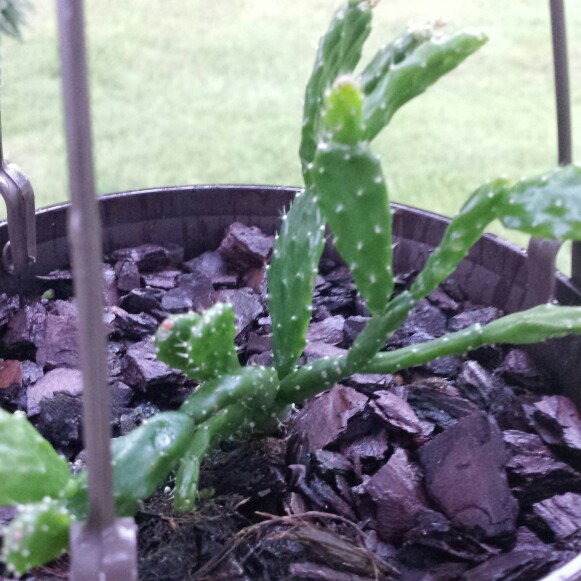
Schlumbergera opuntioides
Schlumbergera 'Opuntioides'
Schlumbergera opuntioides resembles other species of the genus Schlumbergera in that it has leafless green stems, made up of distinct segments. The segments become more cylinder-shaped as they age, as well as becoming more woody. The plant may form a shrub up to 1.2 m (4 ft) tall. Blooms range from pink to purple depending on temperature during budding. Roots easy! larger plants will take similar care as other Schlumbergera but with these exceptions; Keep above 60 degrees as a houseplant during winter. Likes moist soil but no wet feet so excellent drainage is a must. Recommended for advanced growers only.
Contributed by @yepitsdevon816
-
Full sun to partial shade
-
Very little water
-
Not Frost hardy
-
Rich and free draining
Common name
Schlumbergera 'Opuntioides'
Latin name
Schlumbergera opuntioides
type
Flowering plant
family
Cactaceae
ph
5.0 - 7.0 Acid - Neutral
Plant & bloom calendar
-
Best time to plant
-
When the plant will bloom
full grown dimensions
 0.80 M
0.60 M
0.80 M
0.60 M
Schlumbergera opuntioides
Schlumbergera opuntioides resembles other species of the genus Schlumbergera in that it has leafless green stems, made up of distinct segments. The segments become more cylinder-shaped as they age, as well as becoming more woody. The plant may form a shrub up to 1.2 m (4 ft) tall. Blooms range from pink to purple depending on temperature during budding. Roots easy! larger plants will take similar care as other Schlumbergera but with these exceptions; Keep above 60 degrees as a houseplant during winter. Likes moist soil but no wet feet so excellent drainage is a must. Recommended for advanced growers only.
Planting - Growing medium
From Early Spring TO Late Summer
Free-draining, humus-rich, somewhat acid growing media are used, such as a mixture of peat or leafmould and an inert material such as grit, sharp sand or polystyrene beads. It is recommended that plants should be grown in relatively small pots; half-height pots are suitable.
Propogation by cuttings
From Early Spring TO Early Winter
In the home, propagation can be achieved by using short pieces of stem, one to three segments long, twisted off rather than cut. Cuttings are allowed to dry for 1–7 days, forming a callus at the broken end, and then rooted in an open growing medium. Temperatures above 21 °C (70 °F) and up to 27 °C (81 °F) in long day/short night conditions speed rooting.
Flowering Season
From Early Winter TO Late Winter
Schlumbergera Truncata produces flowers in a range of colours during the winter months. Day length is important in controlling flowering; continuous darkness for at least 12 hours is necessary to induce bud formation. A period of about 8 days with 16 hours of darkness at 16 °C (61 °F) has been shown to cause flower buds to form. Lower temperatures slow this process.










